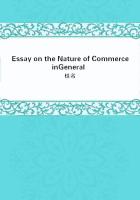The older surveys often show the operation of a system which is adapted by its very essence to a very primitive state of society. It may be called the farm-system, the word farm being used in the original sense of the Saxon feorm, food, and not in the later meaning of fixed rent, although these two meanings appear intimately connected in history. The farm is a quantity of produce necessary for the maintenance of the lord's household during a certain period: it may be one night's or week's or one fortnight's farm accordingly. A very good instance of the system may be found in an ancient cartulary of Ramsey, now at the British Museum, which though compiled in the early thirteenth century, constantly refers to the order of Henry II's time. The estates of the abbey were taxed in such a way as to yield thirteen full farms of a fortnight, and each of these was to be used for the maintenance of the monks through a whole month. The extension of the period is odd enough, and we do not see its reason clearly. It followed probably on great losses in property and income at the time of Abbot Walter. However this may be, the thirteen fortnights' farms were made to serve all the year round, and to cover fifty-two weeks instead of twenty-six. A very minute description of the single farm is given as it was paid by the manor of Ayllington (i.e. Elton). Every kind of produce is mentioned: flour and bread, beer and honey, bacon, cheese, lambs, geese, chicken, eggs, butter, &c. The price of each article is mentioned in pence, and it is added, that four pounds have to be paid in money. By the side of the usual farm there appears a 'lent' farm with this distinction, that only half as much bacon and cheese has to be given as usual, and the deficiency is to be made up by a money payment. Some of the manors of the abbey have to send a whole farm, some others only one half, that is one week's farm, but all are assessed to pay sixteen pence for every acre to be used as alms for the poor.(94*) This description may be taken as a standard one, and it would be easy to supplement it in many particulars from the records of other monastic institutions. The records of St. Paul's, London, supply information as to a distribution of the farms at the close of the eleventh century, which covered fifty-two weeks, six days, and five-sixths of a day.(95*) The firmae of St. Alban's were reckoned to provide for the fifty-two weeks of the year, and one in advance.(96*) The practice of arranging the produce-rents according to farms was by no means restricted to ecclesiastical management; it occurs also on the estates of the Crown, and was probably in use on those of lay lords generally. Every person a little conversant with Domesday knows the firmae unius noctis, at which some of the royal manors were assessed.(97*) In the period properly called feudal, that is in the twelfth and thirteenth centuries, the food-revenue had very often become only the starting-point for a reckoning of money-rents. The St. Alban's farms, for example, are no longer delivered in kind; their equivalent in money has taken their place. But the previous state of things has left a clear trace in the division by weeks.
Altogether it seems impossible to doubt that the original idea was to provide really the food necessary for consumption. One cannot help thinking that such practice must have come from the very earliest times when a Saxon or a Celtic chieftain got his income from the territory under his sway by moving from one place to another with his retinue and feeding on the people for a certain period. This very primitive mode of raising income and consuming it at the same time may occasionally strike our eye even in the middle of the thirteenth century. The tenants of the Abbot of Osulveston in Donington and Byker are bound to receive their lord during one night and one day when he comes to hold his court in their place. They find the necessary food and beverage for him and for his men, provender for his horses, and so forth.
If the abbot does not come in person, the homage may settle about a commutation of the duties with the steward or the sergeant sent for the purpose. If he refuses to take money, they must bring everything in kind.(98*)This is an exceptional instance: generally the farm has to be sent to the lord's residence, probably after a deduction for the requirements of the manor in which it was gathered. When it had reached this stage the system is already in decay. It is not only difficult to provide for the carriage, but actually impossible to keep some of the articles from being spoilt. Bread sent to Westminster from some Worcestershire possession of the minster would not have been very good when it reached its destination.
The step towards money-payments is natural and necessary.
Before leaving the food-rents we must take notice of one Or two more peculiarities of this system. It is obvious that it was arranged from above, if one may use the expression. The assessment does not proceed in this case by way of an estimate of the paying or producing strength of each unit subjected to it, i.e. of each peasant household. The result is not made up by multiplying the revenue from every holding by the number of such holdings. The whole reckoning starts from the other end, from the wants of the manorial administration. The requirements of a night or of a week are used as the standard to which the taxation has to conform. This being the case, the correspondence between the amount of the taxes and the actual condition of the tax-payer was only a very loose one. Manors of very different size were brought into the same class in point of assessment, and the rough distinctions between a whole farm and half-a-farm could not follow at all closely the variety of facts in real life, even when they were supplemented by the addition of round sums of money.
These observations lead at once to important questions; how was the farm-assessment distributed in every single manor, and what was its influence on the duties of the single householder?














